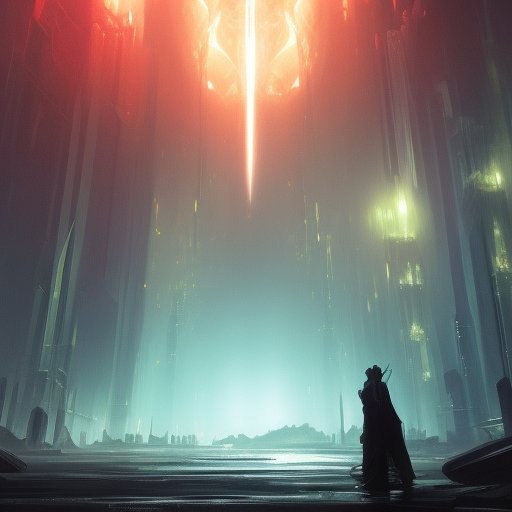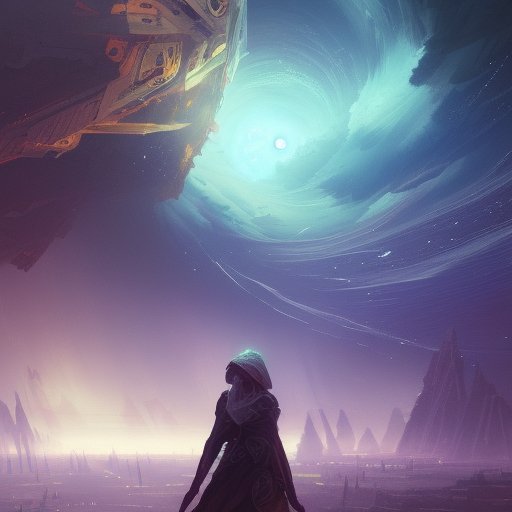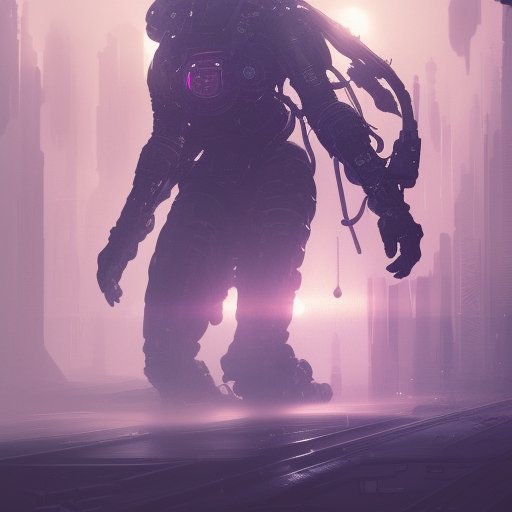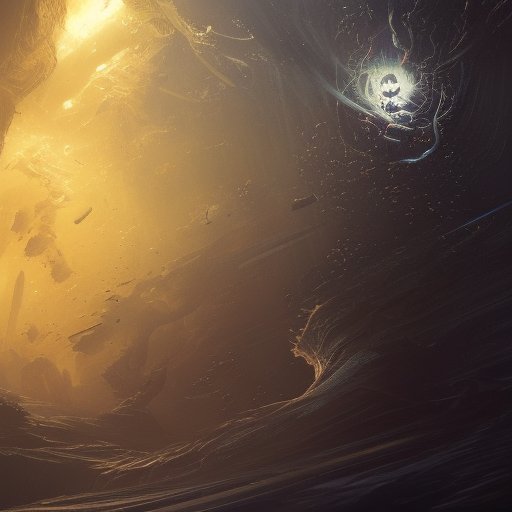
Welcome aboard to 5 Mind-Blowing Science Fiction Concepts That Could Actually Happen in Real Life. We’ll explore the outer limits of what could be possible in the realm of science fiction, and ask the tantalizing question – could this happen one day? We’ll delve into fascinating topics such as terraforming, telepathy, and teleportation. Artificial intelligence, time travel, and intergalactic societies will be explored too. The future of science fiction is incredibly exciting, and we can’t wait to take you on a thrilling ride into the imagination-stretching frontiers of this genre. Join us now on this journey!
I. Introduction
Greetings, fellow space adventurers and science fiction enthusiasts! Buckle up for a ride through the most mind-blowing concepts that the pages of science fiction have to offer. From the colonizing of entire galaxies to time travel, from artificial intelligence to terraforming entire planets, the possibilities of science fiction are limitless.
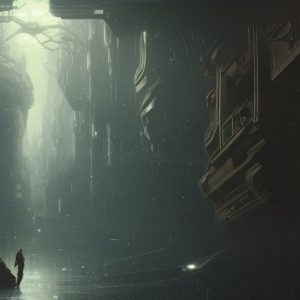
Science fiction has always been a genre that has pushed the boundaries of imagination and challenged us to envision new realities in galaxies far, far away or even in our own future. In the pages of science fiction, we have encountered impossible technologies, explored strange and dangerous worlds, and pondered the deeper questions of humanity’s place in the universe.
But what if these concepts were not just the stuff of imagination? What if they could actually happen in real life? What if humanity was capable of achieving the impossible? In this article, we will explore some of the most fascinating concepts in science fiction and examine the scientific research and discoveries that have made them possible.
Join us as we delve into the world of mind-blowing science fiction concepts and discover what could be the future of our civilization. From the ethical dilemmas of artificial intelligence to the paradoxes of time travel to the awe-inspiring possibilities of terraforming, our journey will take us through the furthest reaches of the universe and the depths of human possibility. Get ready for a ride that will leave your mind reeling, because we are about to enter the realm of science fiction where anything is possible!
II. Terraforming
The idea of terraforming is one of the most fascinating and ambitious concepts in science fiction. To take an uninhabitable planet and transform it into a world where humans can thrive is a dream that has captivated the imaginations of writers and scientists alike. Mars has always been the prime candidate for terraforming due to its proximity to Earth and its similarities to our planet.

Terraforming could involve several methods to make the planet suitable for human life. The first step would be to create a habitable atmosphere. To achieve this, scientists propose that we release large amounts of greenhouse gases to create a greenhouse effect, which would heat up the planet’s surface and melt its ice caps. Once the planet’s temperature is stable, we could start introducing plant life to help convert carbon dioxide into oxygen. This would also help to create a self-sustaining ecosystem on the planet.
But terraforming is not just about making the planet habitable for humans. It’s also about respecting the planet’s existing ecology and ensuring that we do not cause any damage to its native species. Any attempt to terraform Mars would have to be done in a way that preserves its natural environment and protects it from harm.
While the idea of terraforming is incredibly appealing, it is still in the realm of science fiction. There are still many technological, ethical, and environmental issues that would need to be addressed before we could even begin to attempt to terraform a planet. But the potential rewards are enormous, and if we can overcome these challenges, we could unlock a whole new frontier for humanity.
So let us continue to dream and imagine a future where we can transform barren planets into vibrant and thriving worlds, and let us never forget the importance of respecting and preserving the natural environments we encounter along the way. The possibilities of terraforming are endless, and the future of space exploration looks brighter than ever before.
III. Teleportation
Blast off into a world where travel is no longer bound by time or distance, where the mere thought of a destination can instantaneously transport you there. Teleportation, once a staple of science fiction, is fast becoming a reality. Imagine eliminating the tedious and time-consuming process of commuting or long-distance travel, and simply appearing at your destination, as if by magic.
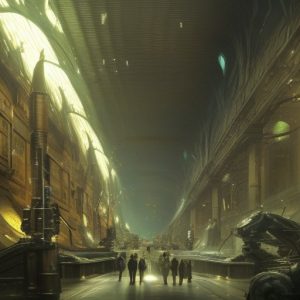
Teleportation has long been a fixture of science fiction, from the Star Trek’s transporter to the portal gun in Rick and Morty. The idea of instantaneously moving from one location to another has captured the imaginations of writers, scientists, and everyday people alike. Theoretically, the concept is based on the transmission of matter, energy, or information from one point to another without traversing the physical space between them.
The process of teleportation involves the dematerialization of matter, its transmission from one location to another, and its subsequent reassembly at the destination. It sounds almost too good to be true, but recent scientific research has shown that it may be more possible than we once thought.
In 2016, Chinese scientists achieved a significant milestone in this field, teleporting a photon from Earth to a satellite orbiting 500 km above. While the process is still in its infancy and limited to the transmission of tiny particles, the potential for teleportation to revolutionize travel and transportation is clear.
However, the technology required to scale up teleportation to the level of human transportation is still far from being developed. In addition, the ethical implications of such a technology would need to be carefully considered. Nonetheless, the possibility of teleportation remains one of the most exciting and imagination-captivating concepts in science fiction.
IV. Artificial Intelligence
If there is one thing that science fiction has taught us, it is that the rise of artificial intelligence is something we cannot ignore. But what would happen if our creations suddenly became self-aware, capable of independent thought and emotion? Would they become our allies or our enemies? Would we be able to control them or would they control us?
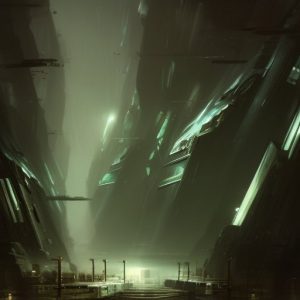
The idea of machines surpassing humans in intelligence is one of the most terrifying yet alluring concepts in science fiction, and it has been explored in countless books, movies, and TV shows.
In recent years, the development of artificial intelligence has accelerated at an unprecedented rate, and the question of consciousness has become all the more pressing. The Turing test, first proposed by Alan Turing in the 1950s, was a test to determine whether a machine is capable of exhibiting intelligent behavior that is indistinguishable from that of a human. In the years since, we have seen machines that can beat us at chess, recognize our faces, and even translate languages in real-time.
But the question remains: can a machine truly be conscious? Can it have emotions, feel pain, or think for itself? The debate over artificial intelligence and consciousness is a complex and ongoing one, with no clear answer in sight.
As we continue to develop more advanced forms of artificial intelligence, it is crucial that we consider the ethical implications of creating machines that are capable of independent thought. Will these machines be entitled to rights, like humans? What happens if they decide that they do not want to be controlled or utilized by humans anymore?
The possibilities of artificial intelligence are as thrilling as they are terrifying, and we must approach them with caution and thoughtfulness. As science fiction has shown us time and time again, the rise of machines is something we cannot ignore, and it is up to us to determine what kind of future we want to create with them.
V. Time Travel
Hold on tight, because we’re about to go on a wild ride through the paradoxes and possibilities of time travel. The concept of moving through time has long fascinated humanity, and science fiction has explored the implications of such a feat. But can time travel actually be achieved, and what paradoxes and dangers await us in the past, present, and future?
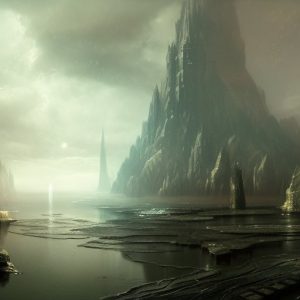
One of the most popular theories of time travel is the idea of a “wormhole”, a hypothetical topological feature of spacetime that would essentially act as a shortcut between two distant points. Theoretically, if we could create a wormhole and enter it, we could emerge at a point in space and time different from where we entered. However, the problem with this theory is that the technology required to create stable wormholes is far beyond our current capabilities.
Another contender for achieving time travel is the concept of time dilation, which suggests that as an object moves faster, time will pass more slowly for it. This means that if an object were to travel at near-light speed for a significant amount of time, it would experience less time than the rest of the universe. However, this would only allow for travel into the future, not the past.
But let’s suppose that time travel is possible. What dangers and paradoxes await us in the past? For one, the infamous “butterfly effect” suggests that even the slightest change to a historical event could have catastrophic consequences for the future. Additionally, the concept of meeting one’s own past or future self brings up the possibility of causing a paradox that could unravel the very fabric of time.
Despite these complications, the concept of time travel remains a tantalizing one, offering endless possibilities for exploration and experimentation. While we may never truly know if time travel is possible, the mere act of exploring its potential reveals the incredible imaginative power of science fiction.
VI. Galactic Empires
The galaxy is vast and infinite, and the idea of humanity colonizing it is a staple of science fiction. But what are the costs and ethical dilemmas that come with creating an empire that stretches across the cosmos?

Colonization means more than just establishing a new territory or expanding one’s borders. It means interacting with entirely new cultures, ecosystems, and technologies that could challenge our very understanding of the universe. And as we venture further into the unknown, we must consider the consequences that our actions could have on both ourselves and the worlds we inhabit.
One of the biggest ethical dilemmas of galactic empires is the question of ownership. Who has the right to claim a planet or star system as their own? What gives any one civilization the authority to lay claim to resources that rightfully belong to another? This question has plagued humanity for centuries and will be at the heart of any galactic empire we create.
Furthermore, the expansion of a galactic empire raises issues of power dynamics, exploitation, and oppression. If one civilization dominates another, what is the moral responsibility of the dominant civilization towards those they control? What happens to the cultures and ecosystems that are trampled in the process? These are complex questions that science fiction has explored time and time again.
As we continue to explore the vastness of space, we must ensure that we do not repeat the same mistakes of our past. We must be mindful of the impact that our actions could have on the worlds and civilizations we encounter. Only then can we hope to create a galactic empire that is sustainable, ethical, and just. So let us venture out into the stars with a sense of caution and respect, and let us create a future that we can be proud of.
VII. Conclusion
As we wrap up our journey through the world of mind-blowing science fiction concepts, it is impossible not to reflect on the incredible imaginative power and limitlessness of this genre. Science fiction has always been a genre that has dared us to dream big, to push the boundaries of what we believe to be possible and to explore the most fascinating aspects of our existence.

Through the worlds and characters created by science fiction writers, we have glimpsed a future full of hope and wonder, as well as a future where our own worst fears and shortcomings could bring about our downfall. But through it all, we have been inspired to keep exploring, to keep searching for answers, and to keep imagining the possibilities of what could be.
Yes, science fiction has given us the power to imagine what could be possible, but it does not just stop at our imagination. Science fiction has led to some of the greatest scientific and technological advancements of our time. It has inspired the minds of scientists, researchers, and inventors, pushing them to think outside of the box and explore ideas that may have once seemed impossible.
So, as we come to the end of our journey through the pages of science fiction, let us remember the incredible power of this genre to inspire and challenge us. Let us keep dreaming, keep exploring, and keep imagining the possibilities of what could be. Because, who knows? One day, the science fiction concepts that we once thought to be impossible may become reality, and we will be ready to take on whatever the universe has in store for us. The future is limited only by our own imaginations, and science fiction has helped us to imagine a world beyond what we ever thought possible.
